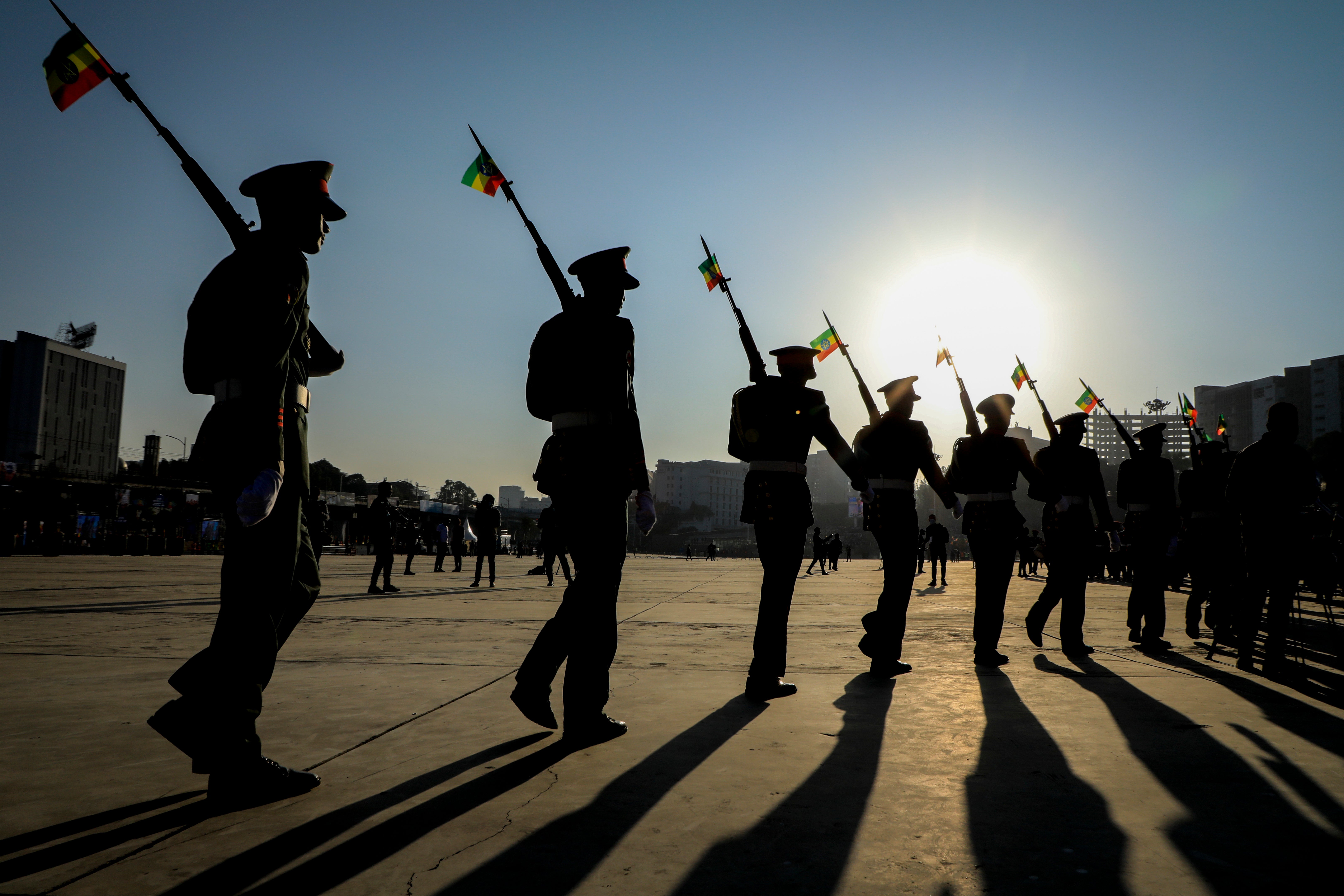Ethiopia lifts state of emergency early, citing calming war
Ethiopian lawmakers have voted to end the country’s three-month state of emergency as mediation efforts continue to end the deadly war in the north

Your support helps us to tell the story
From reproductive rights to climate change to Big Tech, The Independent is on the ground when the story is developing. Whether it's investigating the financials of Elon Musk's pro-Trump PAC or producing our latest documentary, 'The A Word', which shines a light on the American women fighting for reproductive rights, we know how important it is to parse out the facts from the messaging.
At such a critical moment in US history, we need reporters on the ground. Your donation allows us to keep sending journalists to speak to both sides of the story.
The Independent is trusted by Americans across the entire political spectrum. And unlike many other quality news outlets, we choose not to lock Americans out of our reporting and analysis with paywalls. We believe quality journalism should be available to everyone, paid for by those who can afford it.
Your support makes all the difference.Ethiopian lawmakers have voted to end the country's three-month state of emergency as mediation efforts continue to end the deadly war in the north.
Tuesday's vote by lawmakers came after Ethiopia’s Council of Ministers, chaired by Prime Minister Abiy Ahmed, decided on Jan. 26 to end the state of emergency early, citing recent developments in the conflict.
The six-month state of emergency was imposed in early November as Tigray forces fighting Ethiopian and allied forces moved closer to the capital, Addis Ababa. They withdrew back into the Tigray region in late December amid mediation efforts and under pressure from a drone-supported military offensive carried out by the government.
Thousands of mainly ethnic Tigrayans were detained under the state of emergency, according to witnesses, lawyers and human rights groups. Many were released after December's shift in the war.
There was no immediate word Tuesday on when the rest of the people detained under the state of emergency would be released. They include a freelance video journalist accredited to The Associated Press, Amir Aman Kiyaro.
The state-affiliated Fana Broadcasting reported: “The state of emergency investigation board is instructed to finish any outstanding works within a month and report back to the relevant body. Judicial bodies are also instructed to finish emergency law-related cases within the regular judicial process.”
Ahead of Tuesday's vote, an advisory committee within the Ethiopian parliament said the lifting of the state of emergency will help revive the country's economic and diplomatic situation.
Parliament speaker Tagesse Chafo said the committee believes the country's security threats can now be dealt with by regular law enforcement mechanisms.
Fana Broadcasting reported that some members of the advisory committee, however, raised concerns regarding threats posed by the Tigray Peoples Liberation Front and the Oromo Liberation Army that have been fighting the federal army and its allies.
The parliament speaker said security threats in the Amhara, Afar, Benishangul Gumuz and Gambella regions and the Wellega area in the Oromia region will be dealt with by a new “corrective measure” that is being put in place.
Ethiopia’s war erupted in November 2020 and is believed to have caused the deaths of tens of thousands of people and the displacement of millions. Though the war has subsided in several places, notably within the Tigray and Amhara regions, concerns remain in the northeastern Afar region.